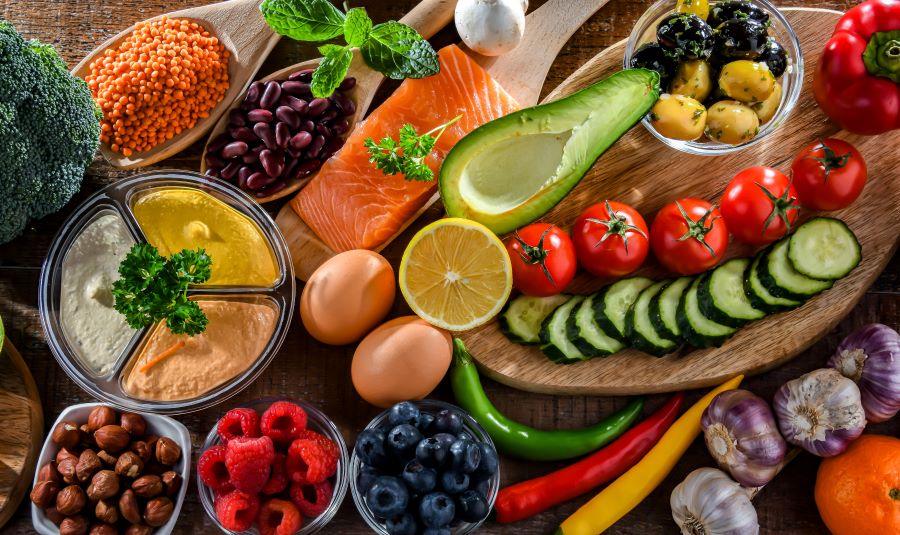Neurotrophic Nutrition: Feeding Your Brain for Cognitive Longevity
The intersection of neuroscience and nutrition is revealing groundbreaking insights into how our diet influences brain health. What if the key to maintaining cognitive vitality as we age lies not just in brain exercises, but in the very foods we consume? This emerging field of neurotrophic nutrition is revolutionizing our understanding of brain health and offering new hope for cognitive longevity.

The Science Behind Neurotrophic Nutrition
At the heart of neurotrophic nutrition lies the concept of neurotrophins, a family of proteins that play crucial roles in the survival, development, and function of neurons. The most well-known neurotrophin is brain-derived neurotrophic factor (BDNF), often referred to as fertilizer for the brain. BDNF supports the survival of existing neurons and encourages the growth and differentiation of new neurons and synapses.
Research has shown that certain nutrients and dietary patterns can influence the production and activity of BDNF and other neurotrophic factors. For instance, omega-3 fatty acids, particularly docosahexaenoic acid (DHA), have been found to increase BDNF levels in the brain. Similarly, flavonoids, a class of plant compounds found in fruits, vegetables, and tea, have been shown to enhance neuroplasticity and protect against age-related cognitive decline.
Key Components of a Neurotrophic Diet
A neurotrophic diet is rich in foods that support brain health and promote the production of neurotrophic factors. Some of the key components include:
-
Omega-3 fatty acids: Found in fatty fish, algae, and certain nuts and seeds, these essential fats are crucial for brain structure and function.
-
Polyphenols: These plant compounds, abundant in berries, dark chocolate, and green tea, have potent antioxidant and anti-inflammatory properties that benefit the brain.
-
Curcumin: The active compound in turmeric has been shown to increase BDNF levels and may have neuroprotective effects.
-
Probiotics and prebiotics: Emerging research suggests that the gut microbiome plays a significant role in brain health, and consuming fermented foods and fiber-rich foods may support cognitive function.
-
Choline: This essential nutrient, found in eggs, liver, and soybeans, is crucial for neurotransmitter synthesis and brain development.
Implementing Neurotrophic Nutrition in Daily Life
Adopting a neurotrophic nutrition approach doesnt require a complete dietary overhaul. Small, consistent changes can have a significant impact on brain health over time. Here are some practical ways to incorporate neurotrophic principles into your daily diet:
-
Start your day with a brain-boosting breakfast that includes eggs (for choline), berries (for polyphenols), and whole grains (for sustained energy).
-
Incorporate fatty fish like salmon or sardines into your meals at least twice a week to ensure adequate omega-3 intake.
-
Snack on nuts and seeds, which provide a mix of healthy fats, vitamins, and minerals that support brain function.
-
Add a turmeric latte or golden milk to your evening routine to harness the neuroprotective benefits of curcumin.
-
Experiment with fermented foods like kimchi, kefir, or kombucha to support gut-brain health.
Challenges and Considerations
While the principles of neurotrophic nutrition are promising, its important to approach this dietary strategy with a balanced perspective. Some challenges and considerations include:
-
Individual variability: The effects of specific nutrients on brain health can vary from person to person due to genetic factors and overall health status.
-
Long-term studies needed: While short-term studies show promising results, more long-term research is needed to fully understand the impact of neurotrophic nutrition on cognitive aging.
-
Whole diet approach: Its crucial to focus on overall dietary patterns rather than single nutrients or superfoods for optimal brain health.
-
Supplement caution: While some supplements may support brain health, its generally best to obtain nutrients from whole food sources whenever possible.
The Future of Neurotrophic Nutrition
As research in this field continues to evolve, we can expect to see more personalized approaches to neurotrophic nutrition. Advances in nutrigenomics and microbiome research may allow for tailored dietary recommendations based on an individuals genetic profile and gut bacteria composition.
Furthermore, the development of functional foods specifically designed to enhance neurotrophic factor production could become a reality in the near future. Imagine breakfast cereals fortified with compounds that boost BDNF levels or snack bars formulated to support neuroplasticity.
Nourish Your Neurons: Smart Bites for Brain Health
-
Savor a square of 70% dark chocolate daily for a flavonoid boost
-
Sprinkle ground flaxseeds on your morning oatmeal for omega-3s
-
Enjoy a handful of walnuts as a mid-afternoon snack for brain-healthy fats
-
Sip on green tea throughout the day for a dose of L-theanine and polyphenols
-
Add a tablespoon of chia seeds to your smoothie for a choline kick
-
Munch on blueberries for a delicious serving of neuroprotective anthocyanins
The emerging field of neurotrophic nutrition offers an exciting new frontier in our quest for cognitive longevity. By understanding how specific nutrients and dietary patterns can support brain health at a cellular level, we can make informed choices that may help preserve our cognitive abilities as we age. While more research is needed to fully elucidate the long-term effects of this approach, the principles of neurotrophic nutrition provide a solid foundation for nourishing our brains today and safeguarding our cognitive future.






